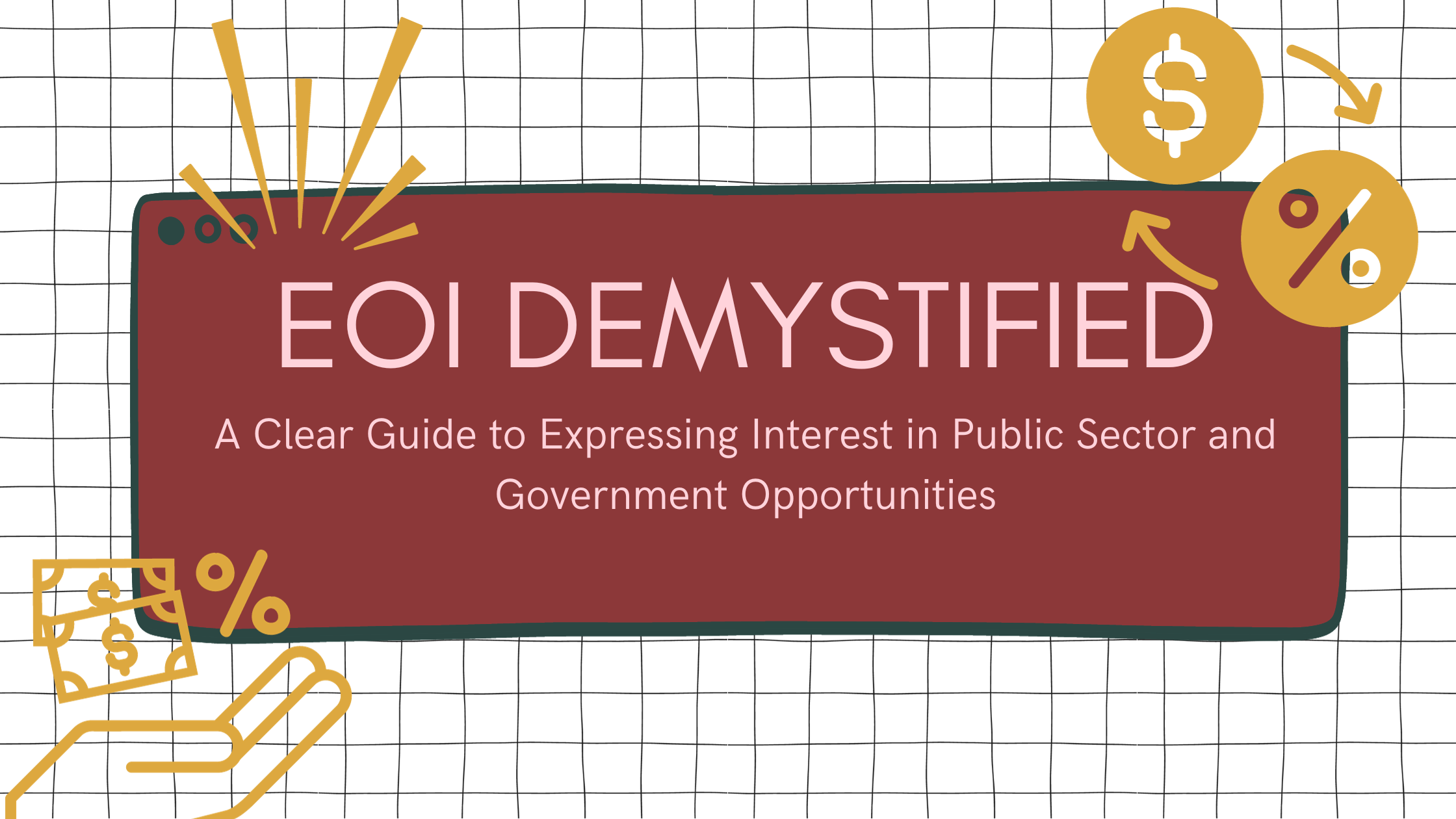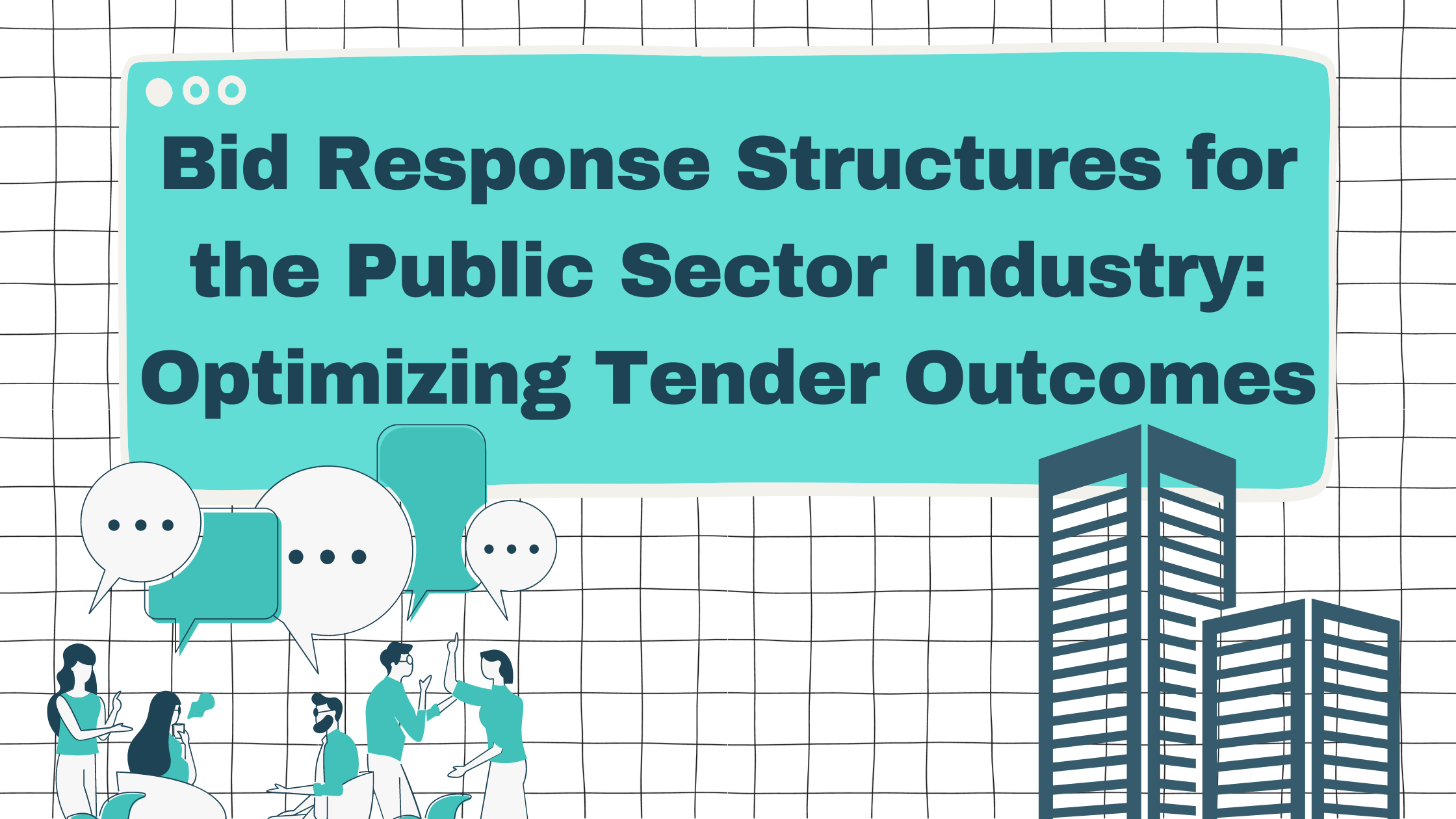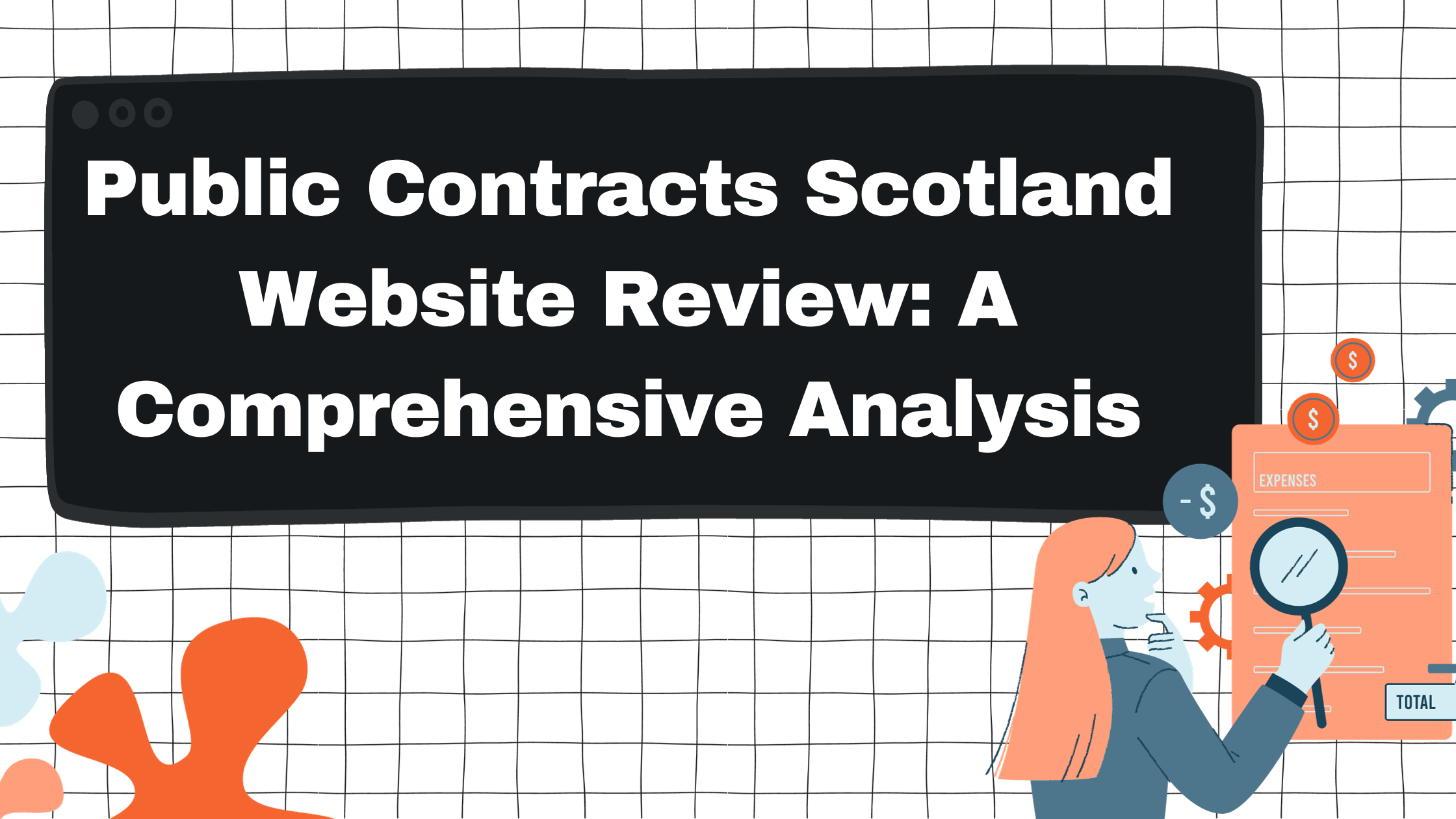Enhancing Proposal Writing Services and RFP Writing with Advanced AI Technology

Need Help with Your Bid?
Get in touch by filling out the form and one of our advisors will be in contact.
Contact UsAI in Proposals Beyond ChatGPT: Elevating Business Pitches with Advanced Technology
Comprehensive Analysis
In today's fast-moving world, professionals and business leaders alike are harnessing the power of artificial intelligence (AI) to revolutionize the bidding process. As an engineer who has transitioned into a business development role, I've observed how AI, and specifically Large Language Models (LLMs), are reshaping the landscape of proposal writing and tender management.
Artificial Intelligence as a Tool
At its essence, AI is a sophisticated tool that is often misunderstood as more than just algorithms and statistical models. Its efficacy in streamlining complex tasks, which we once believed could only be handled by human intelligence, is truly transformative. Yet, despite its advancements, AI isn't plotting world domination—it's a utility, dependent on human use and governance.
Impact of LLMs in Bidding
Bidding encompasses several critical stages: analyzing requests for proposals (RFPs), managing the bid preparation, and crafting coherent responses. LLMs excel by deciphering, dissecting, and authoring comprehensive text. By leveraging these abilities, LLMs unlock substantial value within each phase of the bidding process.
For professionals like myself who work day-to-day with bids and proposals, user-friendly LLMs offer immense time-saving benefits. They assist in simplifying complex text, decoding acronyms, and creating outlines swiftly, among other tasks. This fosters an increase in productivity that cannot be overstated.
However, it's paramount to handle proprietary information cautiously. Current general-use LLMs may not guarantee the security of confidential data, a critical factor in the context of business-sensitive information.
Today's Business Benefits
For businesses, generic models fall short, yet specialized solutions derived from AI LLMs are already enhancing corporate bidding strategies. These custom applications of AI offer a competitive advantage by streamlining processes such as tender screening, bid/no-bid decision-making, and the creation of proposal management tools.
Service providers are actively seeking to operationalize this potent technology while navigating challenges related to intellectual property and cybersecurity. Some have already succeeded, and there are resources available for both individual professionals and businesses to learn more about these AI applications within the bidding realm.
Forward-Looking Perspectives
Three years down the line, the landscape is expected to evolve with a select number of powerful AI models being maintained by prominent tech corporations. A pivotal space may emerge for intermediary firms that hone these models for niche markets, including the bidding industry, tailoring tools for specific purposes.
In a decade, the pace of AI advancement is such that precise predictions are elusive. But the transformative potential is clear; AI could entirely redefine procurement by establishing new protocols that enable automatic compliance. Bidding may evolve substantially, with the core focus shifting to strategic decision-making based on accurate data and insights, rather than manual preparations.
In sum, AI and LLMs are already pivotal in optimizing bidding processes, and the horizon is brimming with further advancements that will likely change the fundamental nature of bidding and proposal management. The technological leap has the potential to reshape not just the workflows but the very skills and expertise valued in the field.
The Significance of Advanced Artificial Intelligence in Language Understanding
Artificial Intelligence (AI) and specifically, Large Language Models (LLMs), are transforming the landscape of various business practices, including the bidding process. These advanced models are not mystical entities but sophisticated tools that have disrupted traditional methods through applied mathematics and programming.
LLMs Impact on Bidding Procedures
I manage the intricacies of bidding by focusing on the analysis of Requests for Proposals (RFPs), overseeing bid preparation, and authoring responses. LLMs facilitate these tasks by enhancing my ability to understand, extract, and construct elaborate text documents. Recognizing the syntax, these models offer assistance that significantly improves efficiency across the bidding procedure.
Professional Benefits in the Present
For a professional like myself, LLMs are invaluable for their capacity to streamline numerous routine tasks. They aid in simplifying complex text, deciphering acronyms, and swiftly organizing data—things that save hours of effort. In drafting or altering document styles, these AI tools have demonstrated immense utility.
Yet, in utilizing these technologies, I always consider the security of the information input into the systems, particularly with respect to sensitive or proprietary data.
Current Advantages for Businesses
While standard LLMs provide broad benefits, tailored solutions that incorporate this technology are already providing visible enhancements for business bidding teams. These bespoke AI solutions sharpen the competitive edge through improved tender screening, informed bid/no-bid decision-making processes, and the faster generation of proposal drafts.
Forecasting the Next Few Years
Looking ahead, it is evident that the maintenance of potent AI LLMs requires significant investment, likely resulting in dominance by major tech companies. There may be niche startups focused on specific applications as well, but it's anticipated that a range of specialized AI tools will emerge from this tech arena, uniquely tailored to aid in RFP review, proposal management, and response authorship.
These tools can become finely-tuned to the unique needs of a market, industry, or even specific clients, drawing upon a wealth of industry knowledge and past experiences.
A Decade Into the Future
Envisioning a decade in advance in a rapidly evolving field such as AI is speculative, but it's plausible that the procurement process could be fully transformed. We may see standards for automatically meeting requirements and intelligent systems on both the buying and selling fronts communicating effortlessly. In such an environment, my role as a bidding professional may evolve towards strategic decision-making, relying on accurate data and insights rather than drafting skills.
Bidding could pivot to a strategic function where data analysis, insightful decision-making, and the appropriate use of sophisticated tools become paramount, changing the essence of what it means to excel in this domain.
And so, while technology streamlines and accelerates workflows, I am reminded that the core of decision-making transcends technology, rooted firmly in human judgment and value.
Back to Foreword
The Professional Advantages of Current AI Tools
Professionals in today's fast-paced environment are continuously looking for methods to improve efficiency and productivity. Artificial Intelligence (AI), and more specifically, Generative AI, are at the forefront of this transformative era. By utilizing advanced machine learning algorithms, these tools are shaping the framework of responsibilities, such as proposal writing and bid management.
For Professionals:
- Time-saving applications: Utilize AI for simplifying complex texts, handling acronyms, collating and sorting text data, and crafting outlines swiftly. These tools aid in rapidly altering text formats and creating bios from resumes, allowing for a more streamlined workflow.
- Confidentiality concerns: Current Large Language Models (LLMs) carry a caveat regarding the handling of sensitive information: as of now, I advise against inputting confidential data into these tools until there is absolute certainty about data privacy and security measures.
For Companies:
- Custom AI solutions: Tailored AI-driven tools provide bespoke solutions for evaluating tenders, aiding decision-making in bid-vs-no-bid scenarios by highlighting potential issues and competition. They also generate compliance matrices from Request for Proposals (RFPs), helping streamline proposal management processes.
- Strategies for implementing AI: Navigating through challenges like intellectual property and cybersecurity is crucial. Certain tech companies have managed to leverage AI effectively to bolster bidding processes while bearing in mind these complexities.
Over the next few years, I anticipate the influence of large language models to grow considerably, with tech enterprises optimizing these tools for specialized tasks such as analyzing RFPs and drafting proposals. Such machine learning algorithms will become ingrained in the infrastructure of numerous industries, powering everything from generative design to creating immersive experiences in the metaverse.
As the technology progresses, considerations involving compliance, risk management, and upholding human values become critical. The creative and productive potential that AI and machine learning unlock is significant—reshaping societal norms and professional identities.
In terms of academic research, these emerging technologies offer formidable capabilities in data analysis and generating research outlines, propelling the field forward. Additionally, as tools evolve, the way deepfakes and synthesia content are produced and managed will undoubtedly see a shift, presenting both opportunities and challenges.
Looking ahead, the pace of advancements in AI and natural language processing will lead to ever-more sophisticated applications that enhance our capacity for creativity and problem-solving, ultimately influencing productivity rates and shaping the societal landscape in profound ways.
In essence, AI and machine learning are revolutionizing our approach to professional tasks today, not as mysterious or ominous forces but as powerful allies when incorporated wisely and ethically.
Current Advantages for Businesses Utilizing AI
Artificial intelligence is transforming the landscape of various business processes, including the once labor-intensive area of bid preparation and proposal writing. AI algorithms, notably Large Language Models (LLMs), have emerged as pivotal assets, streamlining complex tasks such as interpreting request for proposals (RFPs), orchestrating the bid preparation efforts, and compiling intricate response documents.
- Impact on Bidding: LLMs are revolutionizing the bidding process by:
- Analysis: Providing an in-depth examination of RFPs.
- Management: Streamlining proposal preparation workflows.
- Creation: Automating the response composition with coherent and tailored content.
In my professional experience, embracing general-purpose LLMs has significantly reduced the hours dedicated to rudimentary tasks. Automatically summarizing extensive documents, comprehending and implementing acronyms, and swiftly drafting structured outlines are among the productive gains from these tools. They empower professionals by enhancing creativity and bolstering productivity while respecting compliance requirements.
However, the use of such technology requires due diligence, especially concerning data privacy and security. As of my latest awareness, there remains a gap in solutions that can comprehensively guarantee the confidentiality of sensitive data input into LLM systems.
For a business today, off-the-shelf LLM solutions fall short of addressing the bespoke requirements that come with tendering processes. Nevertheless, industry-specific AI-powered solutions are gaining traction. They offer an array of advantages, including:
- Screening RFPs: Identifying viable tenders and providing insights for bid/no-bid decisions.
- Proposal Management: Generating compliance matrices and curating proposal templates derived from RFP specifications.
- Drafting Responses: Accelerating the creation of draft responses, enabling quicker turnaround times.
The development of AI in this realm is spearheaded by tech enterprises that are striving to surmount challenges related to proprietary content and data security. Present offerings from emerging technology vendors demonstrate that niche LLM applications are indeed rendering valuable services to specialized business functions.
Looking ahead, the domain of AI in bidding and proposal management is likely to be dominated by large, sophisticated models developed by established tech corporations. However, this does not preclude startups from creating bespoke models that cater to specific segments, despite the significant developmental hurdles involved.
It is anticipated that a mediating layer of businesses will emerge, leveraging these sophisticated models to create specialized tools for niche domains, including RFP review and proposal management. Indeed, we envision a future where tools become acutely personalized, informed by historical proposals, market data, and industry-specific insights drawn from a company's unique repository of knowledge.
Imagining a decade from now, AI's rapid evolution suggests procurement and proposal processes may undergo a complete transformation, potentially establishing new automated standards for specifying and adhering to procurement requirements. The very nature of being skilled in proposal management might be redefined, pivoting towards strategic decision-making and leveraging data-driven insights, rather than manual bid preparation.
From my perspective as a seasoned proposal manager and business development professional, adapting to this AI-augmented landscape is not just about harnessing technology but aligning it with core human values and societal expectations. It's about ensuring the synergy of AI with human ingenuity remains at the forefront of innovation while safeguarding ethical considerations in an evolving digital society.
What to Expect in AI Advancements Over the Coming Year
In the fast-paced domain of AI, several innovations stand poised to revolutionize processes across various industries over the next 12 months. Here are key trends and developments that are projected to unfold:
- Advancement of Generative AI in Bidding: Current AI implementations have significantly streamlined the analysis and management of request for proposals (RFPs), as well as the formulation of responses. These advancements are projected to evolve further, making the bidding process even more efficient and intuitive for professionals and enterprises.
- Enhanced Language Model Applications: Large language models (LLMs) have already made an impact by their ability to interpret, restructure, and generate detailed text, fundamentally changing how we approach text-heavy tasks.
- Increasing Role in Compliance and Risk Management: AI algorithms are expected to play a larger role in ensuring compliance and managing risks by identifying potential red flags and streamlining decision-making processes for business leaders.
- Custom AI Solutions for Businesses: While general AI tools serve a broad purpose, there is a trend towards tailored AI solutions that cater to specific industry needs, strengthening competitive advantages and boosting productivity.
- Focus on Ethics and Human Values: As AI's capabilities grow, there will be an emphasis on aligning its development with human values, ensuring that technology augments human work without compromising ethical standards.
- Augmented Creativity and Productivity: Tools augmented by AI and machine learning algorithms will increasingly assist professionals by taking over repetitive tasks, which allows for a greater focus on strategic and creative responsibilities.
- Advancements in Education and Academic Research: With AI's ability to process vast amounts of text data, academic research will become more efficient, aiding in the analysis and summarization of literature, as well as generating research outlines.
- Impact on Society and Employment: AI's trajectory will compel society to adapt, with job roles transforming to integrate AI tools harmoniously, shifting the focus towards more value-added, decision-making positions.
- Progress in the Metaverse and Immersive Experiences: AI will likely shape the metaverse, offering more immersive and interactive experiences by powering realistic generative design and synthesia, affecting not only entertainment but educational and professional environments as well.
- Emergence of AI-generated Content: The proliferation of AI-created content, such as deepfakes, will necessitate robust detection and mitigation systems to manage the associated risks.
AI, once perceived as a simple tool, is now at the forefront of technological evolution, intertwining with everyday workflows and corporate operations. The upcoming year promises notable strides in AI development that could shape the future, making it an era of profound transformation.
Enhancing Proposal Writing with AI
Leveraging Artificial Intelligence for Proposal Writing Efficiency
AI tools are instrumental in streamlining the proposal writing process. They enable rapid analysis of Request for Proposals (RFPs), management of bid preparation, and efficient crafting of responses. AI significantly reduces the time spent on these tasks by:
- Automatically categorizing and summarizing RFP requirements.
- Assisting in the creation of a compliance matrix.
- Providing templates and writing suggestions based on best practices.
Leading AI Solutions for Crafting Persuasive Proposals
Several AI-powered platforms are recognized for their effectiveness in proposal writing:
- AI Proposal Assistants: Well-regarded for their ability to generate content and provide writing support.
- Bid and RFP Management Tools: These encompass features for tracking and managing proposal components.
- Text Optimization Software: Helps refine and tailor the proposal language to the potential client's needs.
The Impact of Generative AI on Proposal Quality
Generative AI brings sophistication to proposal development with:
- Tailored content creation that aligns with client-specific requirements.
- Advanced language models which improve the readability and persuasiveness of text.
- Data-driven insights that incorporate historical success factors into new proposals.
Essential Features of AI for RFP Writing Support
When selecting an AI solution for RFPs, I prioritize:
- Natural Language Processing: For understanding and responding to complex RFP directives.
- Content Personalization: Enabling customization to echo the client's language and preferences.
- Collaborative Tools: Allowing team members to work together within the AI platform.
AI-Driven Transformation in Fundraising Proposal Development
AI applications are reshaping fundraising proposals by:
- Identifying patterns in successful past proposals.
- Suggesting impactful wording that resonates with donors.
- Providing predictive analytics for better targeting and personalization.
Best Practices for AI Integration in Proposal Workflow
To effectively integrate AI into proposal workflows, I recommend:
- Establishing clear goals and parameters for the AI's role.
- Providing sufficient training data for the AI to learn from.
- Ensuring a seamless blend of human expertise and AI efficiency.
Ready to start your search?
Get in touch by filling out the form to the right and one of our advisors will curate a personalised selection for you.
Get in touchBlogs. Guides. Helpful advice.

Mastering Proposal and RFP Writing for Government and Public Sector Opportunities

Proposal and RFP Writing Services: Enhancing Public Sector Tender Outcomes

.svg)